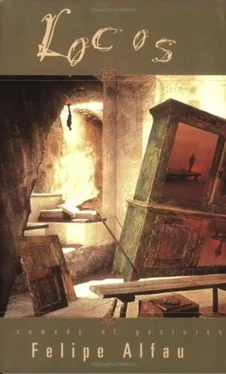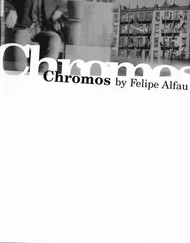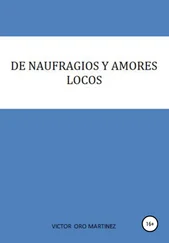The Black Mandarin stood there looking at Don Esteban. He felt a strong impulse to crush this man. Then he pushed his hat on his head and rushed out.
As he was crossing the garden he heard a boy’s voice coming from a window:
“Who is that ugly Chinaman?”
And then a feminine voice:
“Keep quiet, Gil.”
He felt the blood mount to his head and a foul epithet escape him. He had felt again the lash upon his bare back.
At the gate he heard a powerful bark and a voice crying in Filipino dialect. He turned around and saw a huge dog rushing toward him with a piece of torn leash hanging from his neck and a little Tagalo running behind.
The Black Mandarin planted himself firmly. He raised his hands and awaited the attack. The dog took a leap and the powerful hands of Chinelato closed like claws about his neck. For a moment it was the fight of an animal with another animal. The dog tore away and wriggled, but in vain; the viselike grip grew stronger and stronger, the iron fingers bored through and sank into the dog’s neck mercilessly. The face of Chinelato glowed with savage joy. He kept the dog hanging in that way and his hold tightened further. The dog grew limp. Then a woman was heard screaming inside the house and Chinelato released his hold. The dog fell to the ground like a rag.
Both the little Tagalo and his own coachman had witnessed the scene without uttering a word, trembling with fear. The Black Mandarin entered his carriage and said to the coachman:
“Drive for an hour or so anywhere, I don’t care what direction you choose, just keep going and then. take me home.” And he leaned back on the cushions and closed his eyes.
“And what became of Señorita Bejarano and The Black Mandarin?”
“She returned to Spain with her family and married a wealthy merchant, and as to The Black Mandarin, for some time he was thought dead, assassinated. He had disappeared just before the United States took possession of the Philippines. But then some people learned that he was alive. and you know? That man who had been so influential came to Spain shoveling coal in a ship.”
“I did not know that. His life was certainly full of contrasts, he was a colorful character. They say that his house in Manila was the most sumptuous palace, that people visited it as a museum.”
“Hmmm. He was a very interesting man. Let’s have another drink.”
The Plantation
Juan Chinelato did not stay in Spain very long the first time. He went away soon.
From a man who said he knew all about him I learned that he spent some time in the West Indies and Mexico and later somewhere in South America. Cuba, however, seemed to be the most propitious country for him. There he made a fortune in sugar plantations and in white slavery. The man who said he knew all about him entertained obviously a bad opinion of Chinelato mixed with apparent admiration. From him I learned that when Chinelato first arrived at Cuba from Spain he did not have a cent to his name. He went to work at a sugar plantation owned by a rich Basque called Iturbe. There he soon commanded the respect of his fellow workers because of his physical strength and his ability to outdrink everybody with rum. Always fond of gambling, he gambled with the other men and in that way managed to add to his scanty pay.
One day Señorita Iturbe came to look at the plantation with her father. There she saw Chinelato for the first time. She stopped her horse while her father advanced, talking to a foreman, and for a long time admired the giant. Chinelato was stripped from his waist up. She was amazed. Under his bronze skin, glittering with perspiration at the tropical sun, his muscles gathered into bulky masses, protruded and then scattered into thick knots rolling all over his enormous frame like waves in a dark sea. She also noticed his drooping mustache and his dull, oblique eyes, which lent him the enigmatic aspect of a disdainful faun.
Señorita Iturbe returned often and stopped her horse on the same spot and looked long and dreamily at Chinelato. She was pale, with a strong tendency to anemia and persistently read the poems of Campo Amor.
Chinelato looked at her as an equal, perhaps as an inferior, and sometimes he did not look at her at all. According to the man who knows all about it, she looked as if saying: “I know you want to and I also want to, but it is impossible.” But Chinelato made it possible. They gazed at the same colossal moon hanging from a low and brilliant sky, and he thought of marshy lands and rice fields and fancied snowy mountains in the distance, and she thought of him and mentally recited the poems of Campo Amor. And then they scented and drank the same fresh, strong coffee and she placed danzones and he sang guajiras , and the same ripe mangos melted in their mouths. Indeed, he made it possible and one night he carried her away.
The Champion
The next thing he was in Havana, married to Señorita Iturbe. She was no longer anemic, but she had contracted other affections and still read Campo Amor. As to Chinelato, he engaged in several wrestling exhibitions and then won the championship.
As champion, Chinelato shone once more in the public eye. He was colorful, an accomplished showman, and knew how to do things well. At a wrestling exhibition or match he always appeared wrapped in a luxurious and elegant Chinese robe and had Waldteufel’s Skaters Waltz played by the orchestra, and smiled, displaying a row of wonderfully white teeth. He was a favorite with the public. The fact that he was married to a white woman and beginning to get tired of her added greatly to his notoriety and the public admiration.
Then he went to the United States for a professional engagement. He was successful there, too, and married another white lady. But his former wife, who followed him everywhere, with or without his consent, and who, according to the man who knew it all, was crazy about him, made a terrible scandal in New York and he left the country on a charge of bigamy.
He returned to Havana and then gave himself to a licentious existence. With a group of friends he would run through the city late at night creating a row in every café, in every corner, his strength and wealth becoming more and more insulting. He had never forgiven his wife for the turn she played him in New York and now he ill-treated her in the most cruel manner.
The man who knew all about it told me that by that time Chinelato practically owned a small street in a quarter of Havana, until then rather obscure. There he had installed cafés, amusement places and some other places where one could procure drugs or any other particular thing which might not be legal. There he could be seen drunk every night carrying on with prostitutes and all kinds of gay people.
His wife was pregnant by this time and with the life he led her in that condition she looked very old and sickly. The man who knew used to tell me that it was a shame that an aristocratic white lady like her had run herself to death for such a nigger.
One night she came to the street looking for her husband to get some money from him.
He was drunk as usual. He took her brutally by the arm and placed her in front of two painted ladies who were sitting at his table:
“Look at them and look at yourself. When you can do what they can, come to me for money. Now kneel before your superiors and then get out!”
In the condition in which she was she had to kneel before the two women and then go away amid general mirth.
Madame Chinelato gave birth to a baby. Her husband immediately seized this opportunity to mortify her. He began to say that the child was not his own. He hired one of his stablemen to claim that he was the real father.
The man who knows says:
“As a matter of fact, people who saw the baby said that he was the living image of Chinelato, and not a single person, not even his friends who knew him and his wife, doubted for a moment but that this was his legitimate son. However, they laughed at the joke and thought it was very clever of him to say that and make himself out publicly a cuckold.”
Читать дальше












